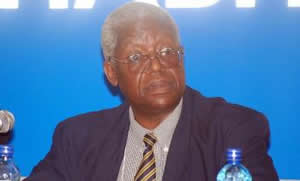President in Ethiopia for AU Security Council meeting
Security Council that is expected to recommend a way forward to end the political crisis in Cote d’Ivoire.
The 15-member council was scheduled to start deliberations yesterday evening and at the time of writing it could not be established when their recommendations would be made public.
Diplomatic sources indicated that the council, of which Zimbabwe is a member, might also institute an inquiry into the sudden explosion of violence in Libya and might constitute a panel to look into that hot spot.
The Peace and Security Council in January this year established a five-member panel to look into the Cote d’Ivoire issue and come up with recommendations that the AU can consider in terms of resolving the crisis.
The panel was given its mandate after the AU lost patience with its mediator, Kenya’s Prime Minister Raila Odinga, who at the 16th Ordinary Session of the continental bloc’s General Assembly, un-procedurally tried to present to the media his report on Cote d’Ivoire.
AU Commission chair, Dr Jean Ping had to enlist security personnel to stop Mr Odinga.
The Peace and Security Council subsequently tasked the organ’s chair, President Abdel Ould Aziz of Mauritania, to lead a panel that would come up with recommendations.
The other members of the panel are Burkina Faso, Tanzania, Chad and South Africa.
They are expected to proffer possible solutions to the political crisis triggered by last year’s contentious presidential election pitting the incumbent, Mr Laurent Gbagbo and the West’s preferred candidate, Mr Alassane Ouattara.
Indications last night were that Cote d’Ivoire’s incumbent president, Mr Laurent Gbagbo, had rejected a proposal put to him by the panel.
The proposal, whose nature was not made public, was presented before the Peace and Secuity Council special meeting started.
AFP quoted former Prime Minister Pascal Affi N’Guessan – who chairs Gbagbo’s Ivorian Popular Front and is here in Addis Ababa – saying, “We think this is an unacceptable proposal.
“The panel made a proposal we categorically reject. This proposal brought nothing to the table that we did not already know.
“If this initiative does not yield relevant and irrefutable proposals that are sufficiently convincing, we fear that the African Union will in a way contribute to completing the coup that began in 2002 and has evolved into an electoral coup with the latest presidential elections.”
This was in reference to an attempted coup in 2002, while he was travelling outside the country, which triggered a deadly civil war.
Gbagbo’s challenger, Mr Alassane Ouattara is in Ethiopia.
Sources said members of the Peace and Security Council were divided on who is the legitimate leader in Cote d’Ivoire and how to proceed.
Outarra’s supporters appear to be mainly from Ecowas, the regional grouping to which Cote d’Ivoire belongs. However, some members of the council have said there is evidence of vote rigging and undue Western meddling in Cote d’Ivoire and it would not be in Africa’s developmental interests to insitutionalise such things through the AU.
A third group is understood to be agitating for a poll re-run and the establishment of a caretaker government in the interim. But even that group is divided on how this caretaker government will work, who will be in it, how long it should last, and what its specific mandate should be.
The Peace and Security Council is likely to also discuss the conflagration in Libya, which diplomatic sources said was an all-out civil war.
The sources said continental leaders were worried about regional security and who was arming the rebels as well as backing them financially.
It was not clear yesterday what kind of action the Peace and Security Council intends to take on the world’s ninth largest oil exporter.
The Peace and Security Council has three representatives from each of Africa’s five regions with Zimbabwe, South Africa and Namibia representing Southern Africa.










Comments